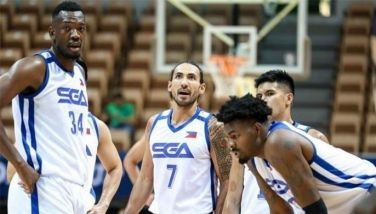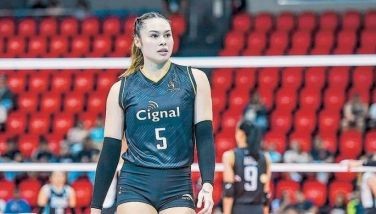Sense of responsibility

For a while, Philippine Football Federation (PFF) president Mariano (Nonong) Araneta thought of not running for another term. Maybe, it was time for others to take over. He was designated interim PFF president to replace Mari Martinez in 2010 then was elected for a first term in 2011 and a second in 2015.
But there was trouble brewing in the local football landscape. Two football-loving brothers were up in arms against each other in their family business and the rivalry threatened to fragmentize the sport. So Araneta, 65, decided to go for a third term to consolidate PFF’s gains and take the organization to the next level. He couldn’t risk a divided PFF.
Araneta was challenged by another candidate and the campaign turned out to be unexpectedly vicious. Questions were raised about Araneta’s character and integrity even as he enjoyed the trust and confidence of both FIFA and AFC as member of the FIFA Executive Council and AFC chairman of the finance committee.
Araneta’s competence was also put to doubt by detractors who took advantage of early glitches in the recent Southeast Asian Games to criticize him. Football matches were held a week before the formal SEA Games inaugurals so logistical snags were conveniently blamed on Araneta who had nothing to do with PHISGOC operations. As it turned out, the football tournament went on smoothly in three venues and Araneta received a 23-12 mandate to serve a third four-year term. The PFF elections were held the day before the SEA Games opening ceremony.
Right after his re-election, Araneta reached out to his critics and offered to work together for the good of Philippine football. That was a clear signal of better things to come. There really is no sense to harbor ill feelings. Football is a unifying sport and PFF should set the example for an undivided leadership.
It was no surprise that in recognition of PFF’s success story as a self-sufficient NSA, Araneta was named the Philippine chef de mission for the coming Tokyo Olympics and PFF secretary-general Edwin Gastanes was appointed POC secretary-general on a concurrent capacity.
Critical in PFF’s state of affairs are focus and honesty. “We receive $1.5 million a year from FIFA with $500,000 earmarked for infrastructure,” said Araneta. “The allocation for infra is what we’re using to build our new 4,000-square meter PFF headquarters with a pitch and dorm facilities in Carmona. Over three years, we will have raised $1.5 million for infra which is our budget for the HQ. FIFA increased the allocation of assistance for each of its 211 member countries by $250,000 a year after the last World Cup generated $6.3 billion in revenues, above the projection of $5.7 billion. In the next World Cup, the estimate is FIFA will earn $6.68 billion. FIFA wants to plow back a big chunk of its earnings to different countries for football development. AFC also donates $400,000 a year so we’ve got a healthy budget to work with.”
Araneta said he wants to empower football associations all over the country and provide them with their own facilities to move the sport forward. “We’re pushing for a national grassroots league where we’ll do provincial and regional eliminations before bringing the top 12 teams to the finals,” he said. “We’re coordinating with DepEd in making the U13 and U17 competitions in the Palarong Pambansa more participative. We’re coming up with grassroots programs in five-a-side for 6-8 year olds, seven-a-side for 9-10 and nine-a-side for 11-12 because we believe, to generate interest in the sport, kids need more touches of the ball. We’re also developing a women’s league. There are built-in football activities every year like summer festivals and the UAAP and NCAA games. But there’s a lot more we can do to promote football.”
- Latest
- Trending





























